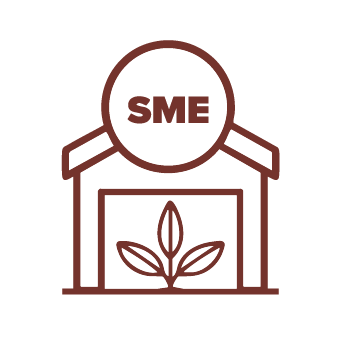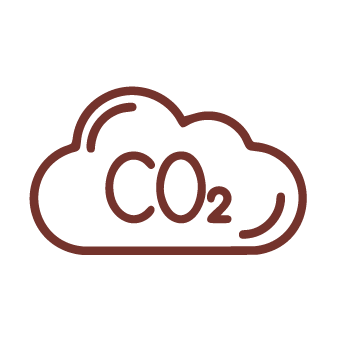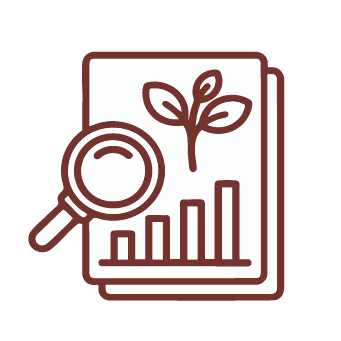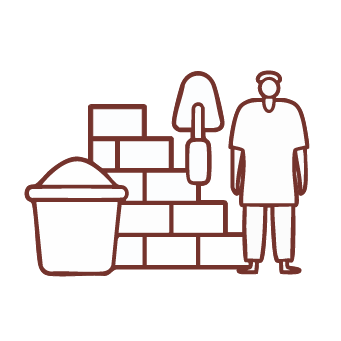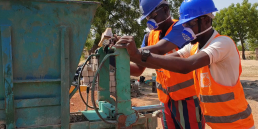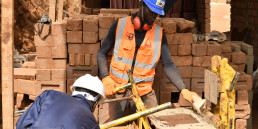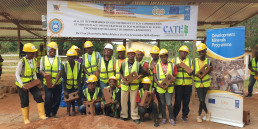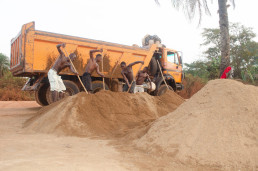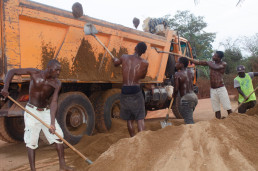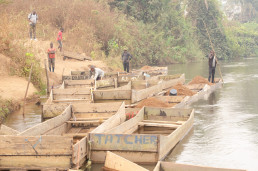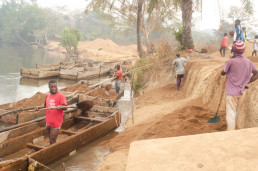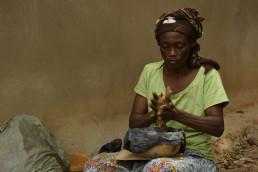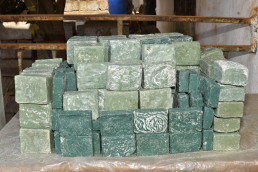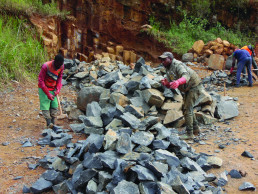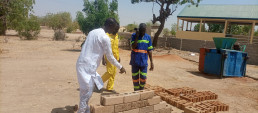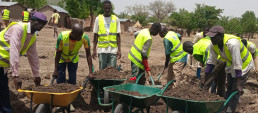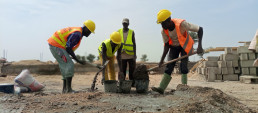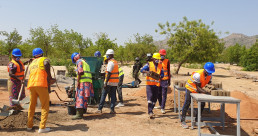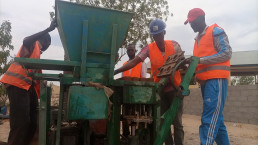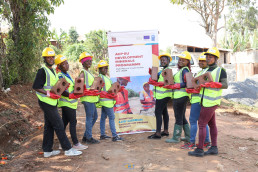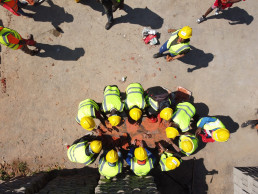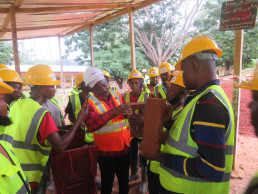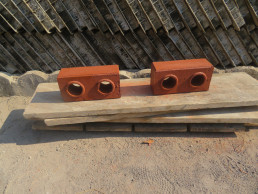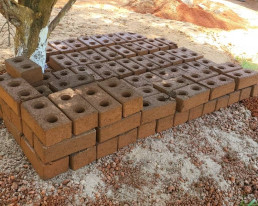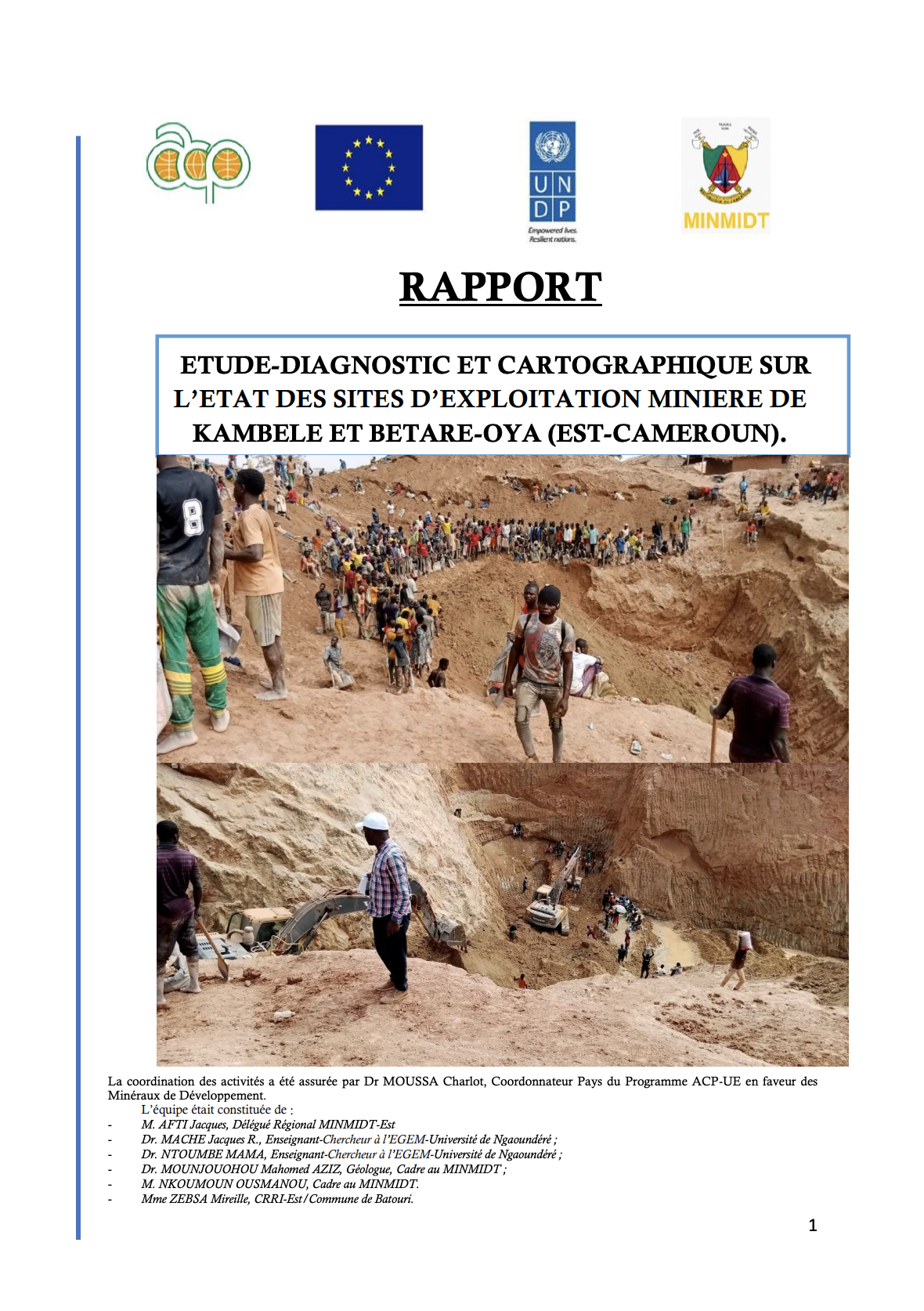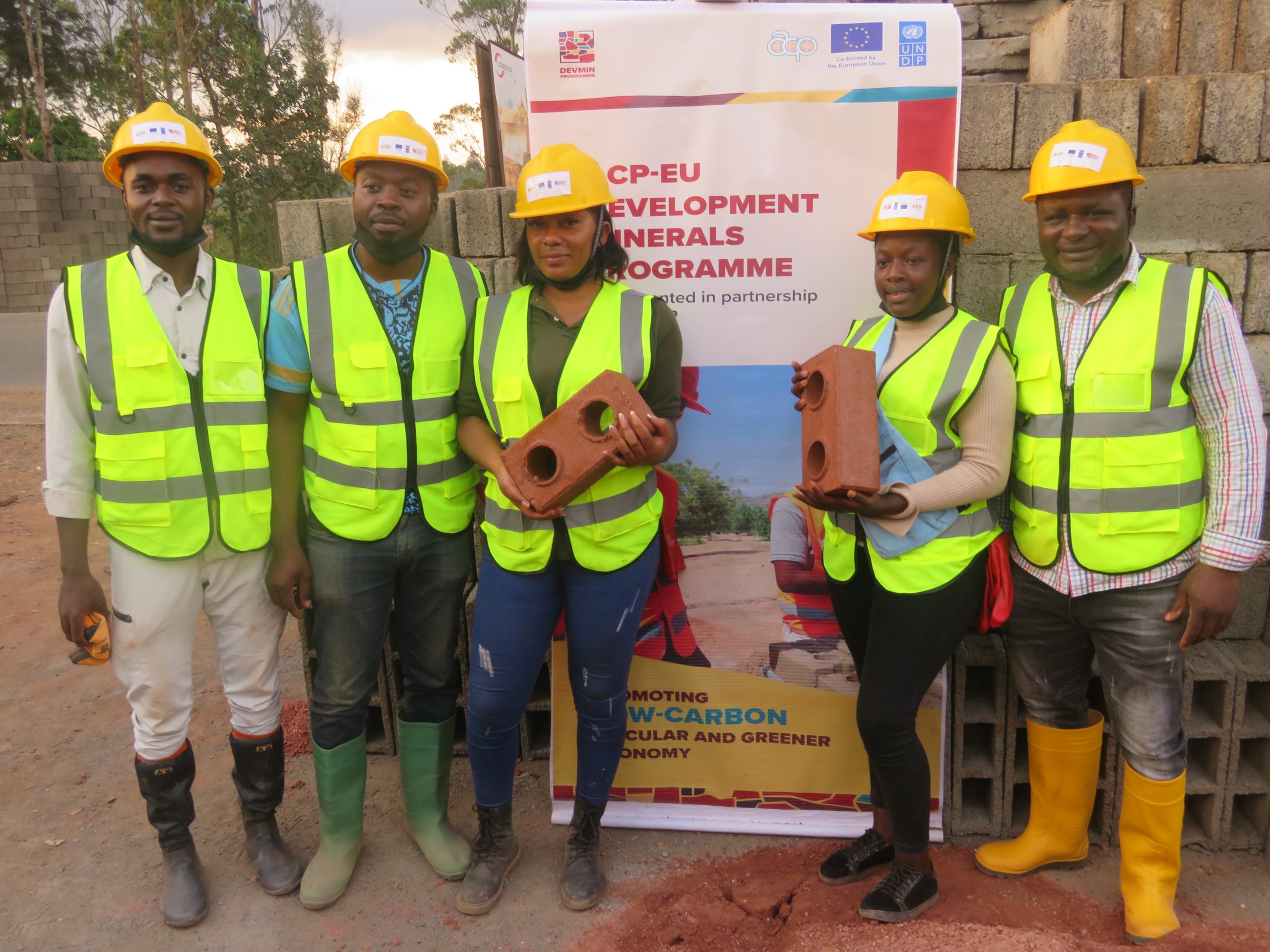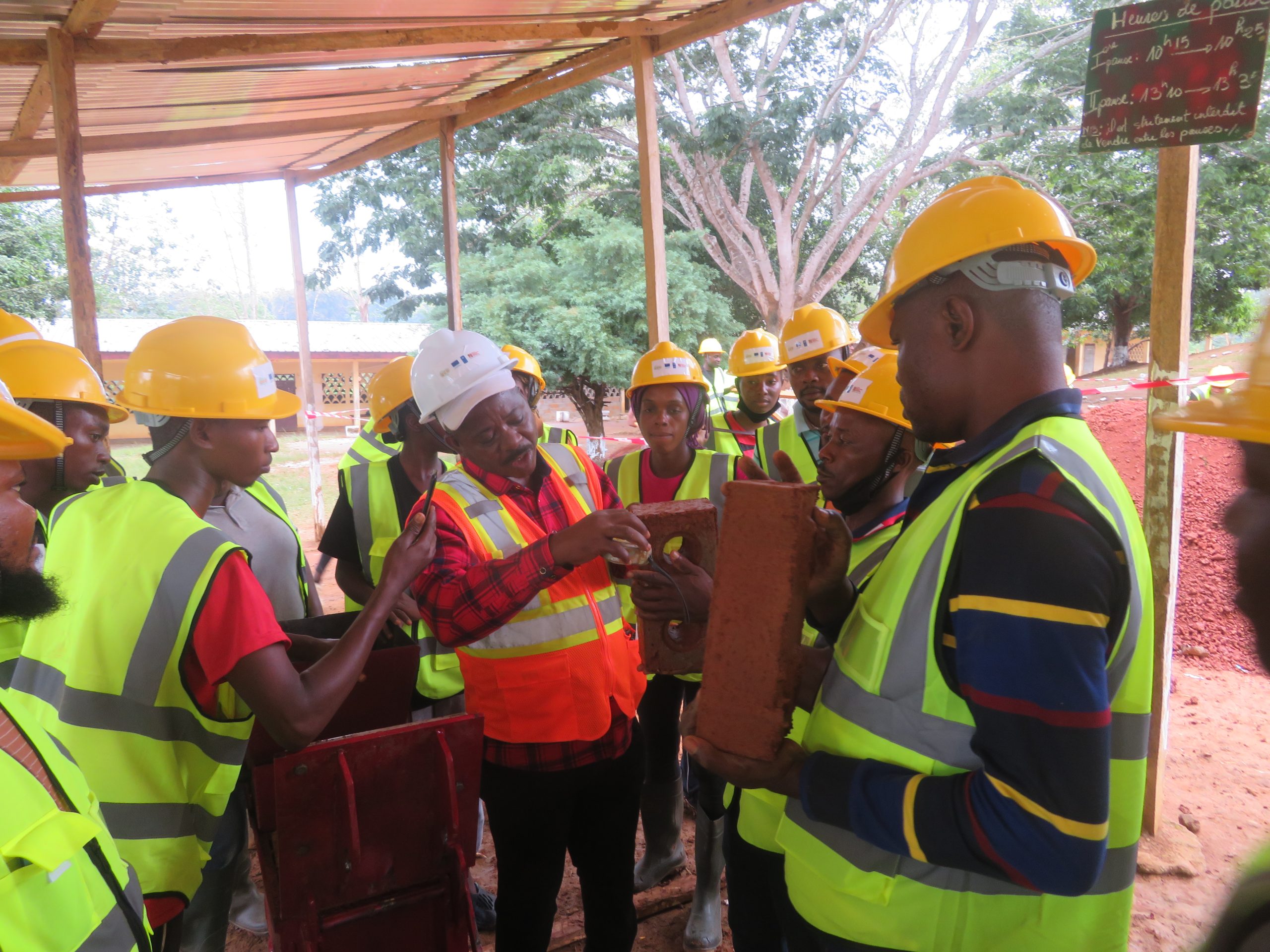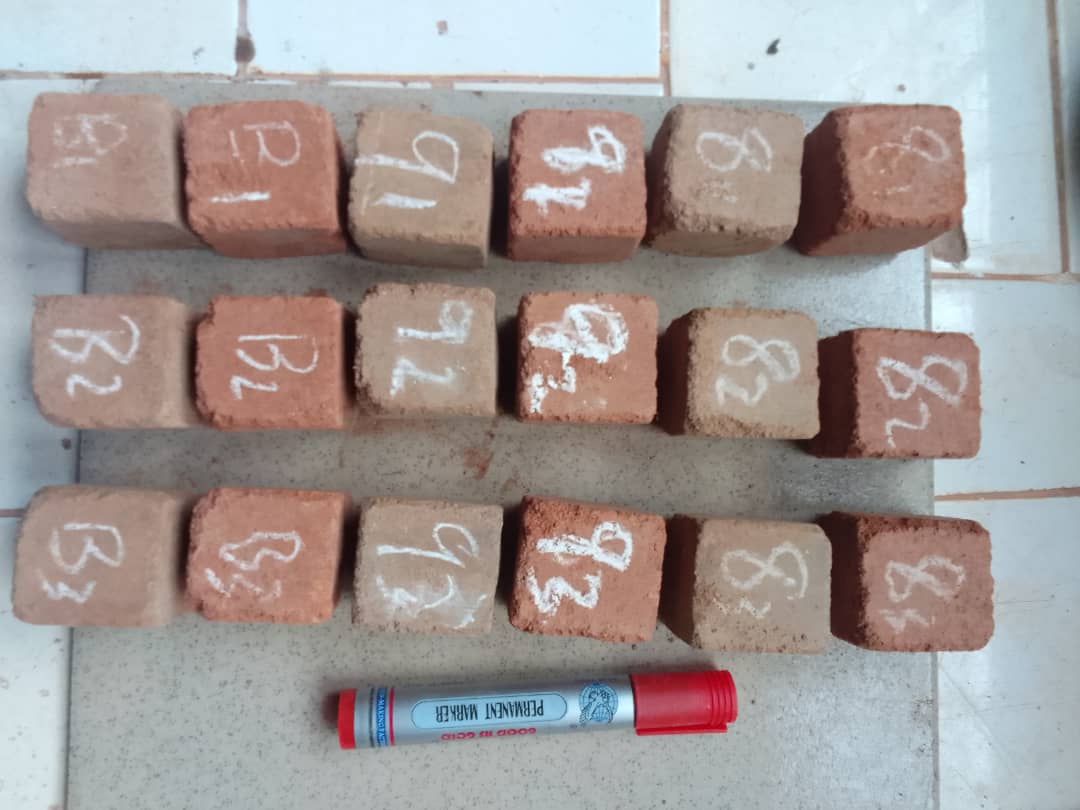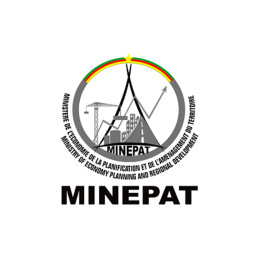CAMEROON
Cameroon, a country in Central Africa, is often referred to as “Africa in miniature” for its geological and ecological diversity. With a population of 29 million, Cameroon has one of the highest urbanization rates in sub-Saharan Africa, with 59 percent of the population living in cities. By 2050, it is estimated that 70 percent of the population will be living in urban areas. The construction industry in Cameroon is growing rapidly to address the significant housing shortage and increasing infrastructure needs.
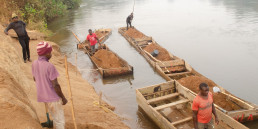
Development Minerals in Cameroon
Cameroon’s rich mineral resources, including construction materials, industrial minerals and precious and semi-precious stones, offer significant potential for economic growth and social development. The Development Minerals sector, primarily driven by artisanal and small-scale miners, contributes to job creation and poverty reduction.
Demand for aggregates and dimension stones is increasing both domestically and internationally. Moreover, rich deposits of critical minerals can boost economic development through local job creation and improved livelihoods for artisanal and small-scale miners.
Artisanal and small-scale mining
Cameroon’s artisanal and small-scale mining (ASM) sector is a significant contributor to the national economy.
200,000
people employed in the Development Minerals sector
90%
artisanal and small-scale miners
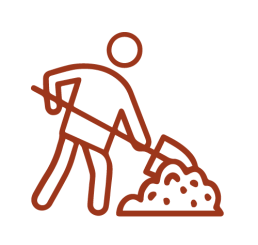
55%
of artisanal and small-scale mining activity is sand mining
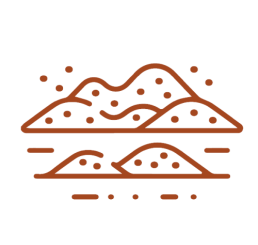
4.3
million tons of sand produced annually worth ~ US$13.95 million

870,000
tons of pozzolan annually, generating
US$941,000 in revenues for artisanal miners

US$ 6.75 million
in additional revenues to the transportation sector from ASM in Development Minerals alone
The artisanal and small-scale mining sector in Cameroon faces numerous challenges. It is highly informal, with 90 percent of mining operations conducted without proper licenses. It has limited access to finance and export markets, lacks environmental safeguards and essential resources like skills and equipment. This leads to low productivity and low incomes.
Cameroon’s legal and policy framework of mining, anchored in the Mining Code 2023, aims to promote economic and social development, improve governance, and strengthen regulations in the mining sector. Government initiatives focus on formalizing the artisanal and small-scale mining sector, decentralizing the authority to local governments, and building capacity through training and equipment provision for artisanal and small-scale miners.
OUR ACHIEVEMENTS IN CAMEROON
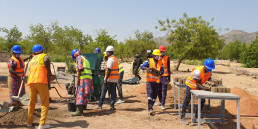
The ACP-EU Development Minerals Programme works to promote economic growth and environmental sustainability in mining by strengthening Cameroon’s artisanal and small-scale mining sector.
LEGAL AND INSTITUTIONAL ENVIRONMENT
Provided evidence for policies, strategies and laws on Development Minerals and supported their implementation by:
- Formalizing artisanal and small-scale mining operations, enabling miners to access legal protections, financial support, and new market opportunities
- Conducting baseline studies and census surveys on artisanal and small-scale mining
- Producing geological maps and databases to identify sites for exploitation of minerals
- Sharing knowledge and best practices at national, regional and international platforms
ENVIRONMENTAL AND SOCIAL SAFEGUARDS
Promoted sustainable mining practices in artisanal mining by:
-
- Conducting studies on the impacts of mining and deforestation and organizing community-based ecological restoration
- Training artisanal and small-scale miners on environmental management, mine safety, and health practices
- Training and building capacity of miners and professionals in mineral resource estimation, mining management, health and safety, geodata and mapping, and entrepreneurship
VALUE-ADDITION AND INNOVATION
Contributed to developing value chains in low-carbon materials by:
-
-
- Strengthening value addition to Development Minerals to produce low-carbon building materials
- Conducting advanced research on low-carbon materials
- Improving local construction industry standards to enhance the quality and competitiveness of locally produced construction materials
- Conducting training for professionals in production of low-carbon materials and construction
- Developing new markets for low-carbon and eco-friendly construction materials like stabilized earth bricks and low-carbon cement
- Facilitating access to markets for artisanal and small-scale miners
-
FOCUS AREAS
Enabling Environment
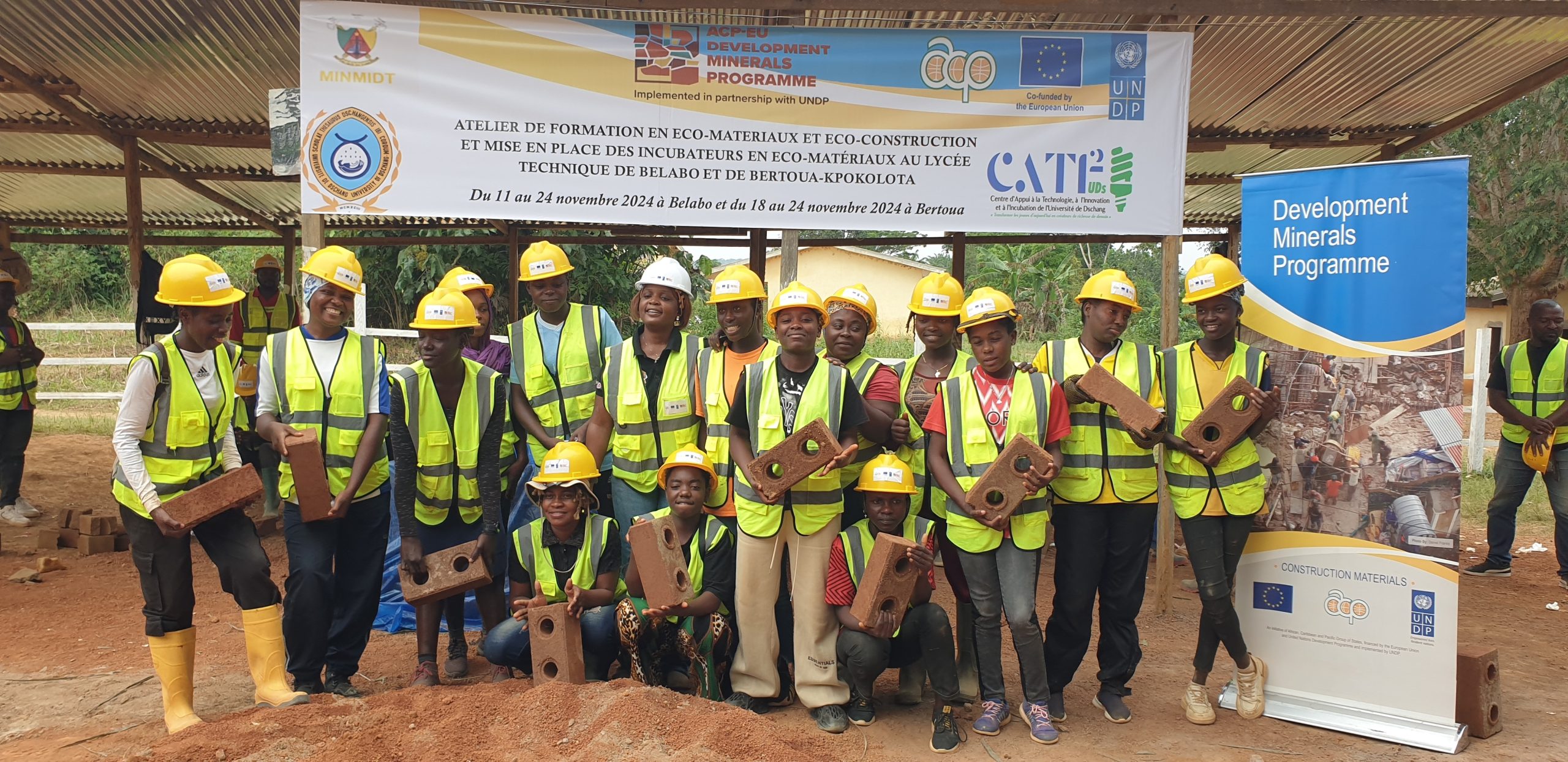
POLICIES AND INSTITUTIONS
The Programme works to strengthen the policy and institutional environment for artisanal and small-scale mining by contributing to the development of national strategies and programs.
-
-
- Helped develop the National Strategy for Formalization and Business Acceleration of ASMEs
- Contributed to the National Programme on Development Minerals and Extractive Industries in Cameroon
-
GEOLOGICAL AND MINERAL INFORMATION
The Programme developed the knowledge base needed for sustainable sourcing of minerals for production of low-carbon building materials. It helped create detailed geological maps and databases of mineral deposits that are economically viable and suitable for industrial and semi-industrial minerals exploitation.
In the north of Cameroon, the Programme mapped the locations, quality and availability of clay. The mapping identified and characterized suitable clay deposits to produce low-carbon building materials, such as stabilized earth bricks. Agricultural waste materials, such as rice husks, were also mapped.
This data-driven approach equips communities with the knowledge of long-term, sustainable extraction practices and enables authorities to better balance mining with its environmental impact. It also allows the Programme to work in areas with substantial resources of minerals and circular materials (agricultural waste) to contribute to the development of value-added industries, youth skills training and employment opportunities in the northern Cameroon.
40 maps and databases from Far North, North, Adamawa, Central, Littoral, West, South regions identified:
-
-
- Sources of economically viable Development Minerals deposits such as clay, dimension stone, sand, granite, pozzolan, limestone
- Sources of agricultural waste materials such as rice husks to be used in low-carbon material production
- Sites affected by environmental degradation from mining
-
Artisanal and small-scale mining
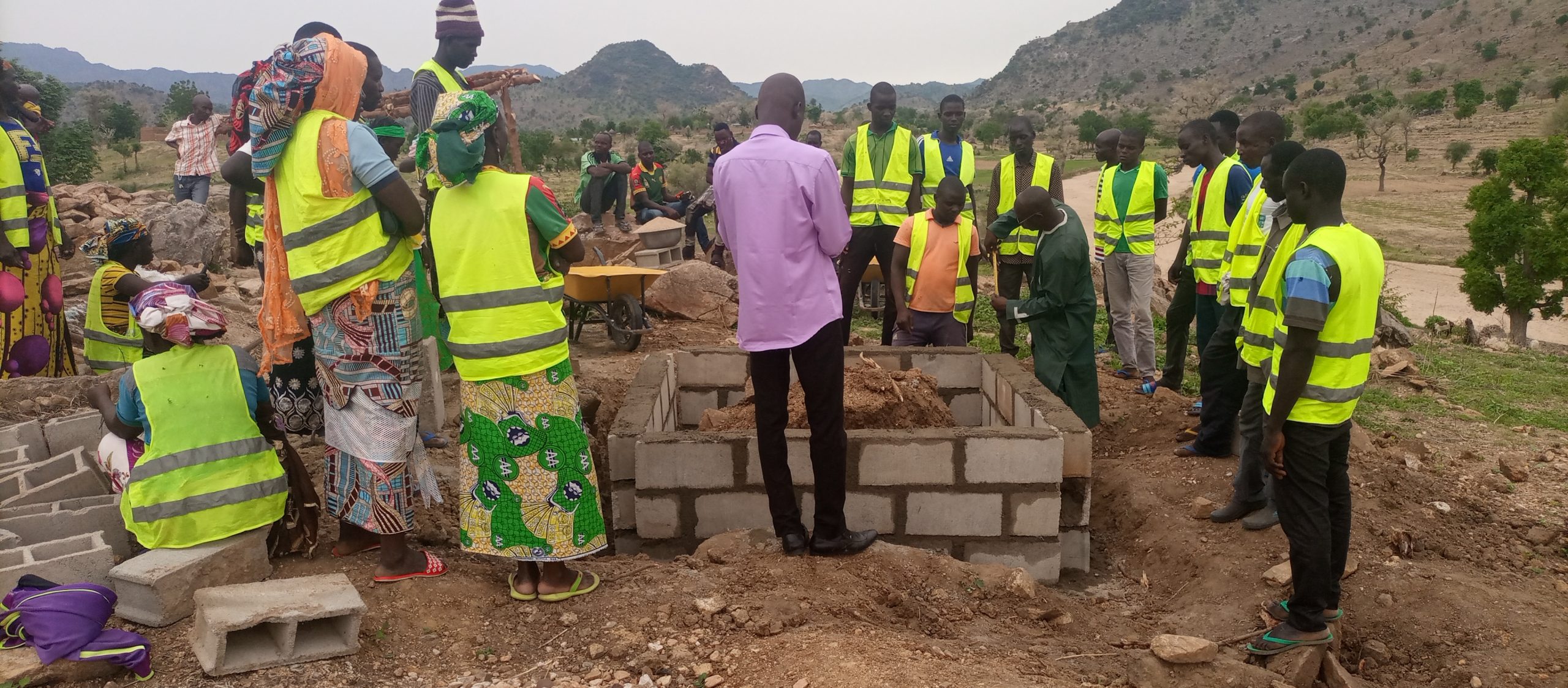
ORGANIZATION AND FORMALIZATION OFARTISANAL AND SMALL-SCALE MINERS
The Programme works to empower miners, improve working conditions, enhance environmental sustainability, and contribute to the responsible and equitable growth of the mining sector.
The Programme has supported the organization and formalization of 150 artisanal and small-scale mining enterprises in Cameroon and helped the development of strong and representative organizations. It works with local municipalities to support artisanal and small-scale mining enterprises to standardize their products and integrate artisanal and small-scale mining activities in municipal development plans.
ENVIRONMENTAL, SOCIAL, GOVERNANCE AND SAFETY PRACTICES
The Programme works to advance health, safety, and environmental and social sustainability in the artisanal mining sector in Cameroon. It conducted comprehensive assessments of environmental impacts, promoted sustainable sourcing of minerals, driven ecosystem restoration efforts, and addressed critical social and economic issues affecting mining communities. These efforts have resulted in a better understanding of the sector’s challenges, improved collaboration among stakeholders, and led to improvements in environmental and social outcomes for both miners and local communities.
The Green Mining Initiative
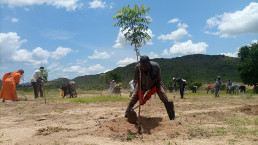
The Programme organized an assessment of deforestation in the Congo Basin, which led to creation of the Green Mining Initiative in 2022 by the Ministry of Mines, Industry and Technological Development. The Programme coordinates and supports this multistakeholder initiative.
The Green Mining Initiative aims to integrate climate change and environmental management considerations into all mining activities to enhance the resilience of communities living near mining sites. The initiative focuses on climate change adaptation, green infrastructure development, ecosystem restoration, and biodiversity conservation. It promotes innovative approaches, facilitation of technology transfer and capacity building.
To inform the Green Mining Initiative, the Programme conducted five scoping studies on the environmental and social impacts of mining in the East, North, Far North and West regions of Cameroon. The study in the East region, situated at the edge of the Congo Basin forest, was conducted with extensive fieldwork. These studies investigate the scale of mining impacts and assess environmental conditions at mining sites. They helped identify options for environmental restoration of sites degraded by mining, and governance mechanisms to implement the restoration. These assessments involved a participatory process that included experts, the government, artisanal miners and local communities, and aim to provide them with crucial information to mitigate environmental impacts of mining.
Five scoping studies to inform the Green Mining Initiative
Since mining in Cameroon is dominated by artisanal and small-scale mining, putting in place participatory and governance mechanisms that involve artisanal mining communities is essential for the success of environmental restoration. In this regard, the assessment and engagements in the East Cameroon, serve as an important case for others affected by mining.
Pozzolan Quarry Environmental Impact Assessment
The Programme conducted cumulative environmental impact assessments of the pozzolan quarrying sites in the commune of Foumbot, West Cameroon, in 2018 and 2024. Pozzolan is volcanic rock and is used for production of lower-cost, low-carbon cement.
The assessments evaluated the environmental, social, and economic impacts of pozzolan mining. The 2024 study found that the number of artisanal miners in pozzolan mining has grown more than ten-fold between 2018 and 2024, and that many large-scale mining companies have entered the pozzolan mining industry, reflecting the rapidly increasing demand in construction materials. They study also identifies mitigation measures, such as site restoration, biodiversity protection, water and soil management, improvement of working conditions and stakeholder participation, and recommends actions to address critical gaps in environmental protection, community engagement, and conflict resolution.
Health, Safety and Environmental Management Trainings
The Programme conducted comprehensive training programs for artisanal and small-scale miners in hazard identification, risk assessment, safe mining practices, the use of appropriate safety equipment, and environmental management of artisanal mines. These trainings aim to reduce occupational injuries and fatalities within the artisanal and small-scale mining sector in Cameroon and promote a culture of safety and responsibility among miners.
Trained in health, safety and environmental management:
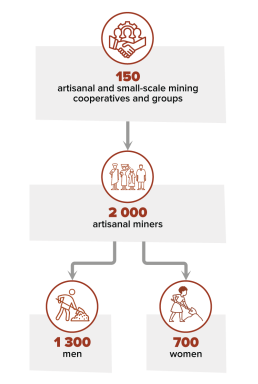
EMPOWERING WOMEN IN ARTISANAL MINING
Recognizing the critical role women play in artisanal and small-scale mining, the Programme has implemented targeted interventions aimed at formalization of women’s artisanal mining groups, enhancing women’s economic participation, improving their livelihoods, and addressing the specific challenges they face. These efforts have focused on increasing women’s access to finance, training, and technology, while also promoting gender equality and inclusivity within mining communities.
Women artisanal and small-scale miners and entrepreneurs were also extensively trained in environmental protection, entrepreneurship, financial planning. In addition, as part of value-addition trainings, women were trained in production of stabilized earth bricks to boost their incomes.
Business and value chain development
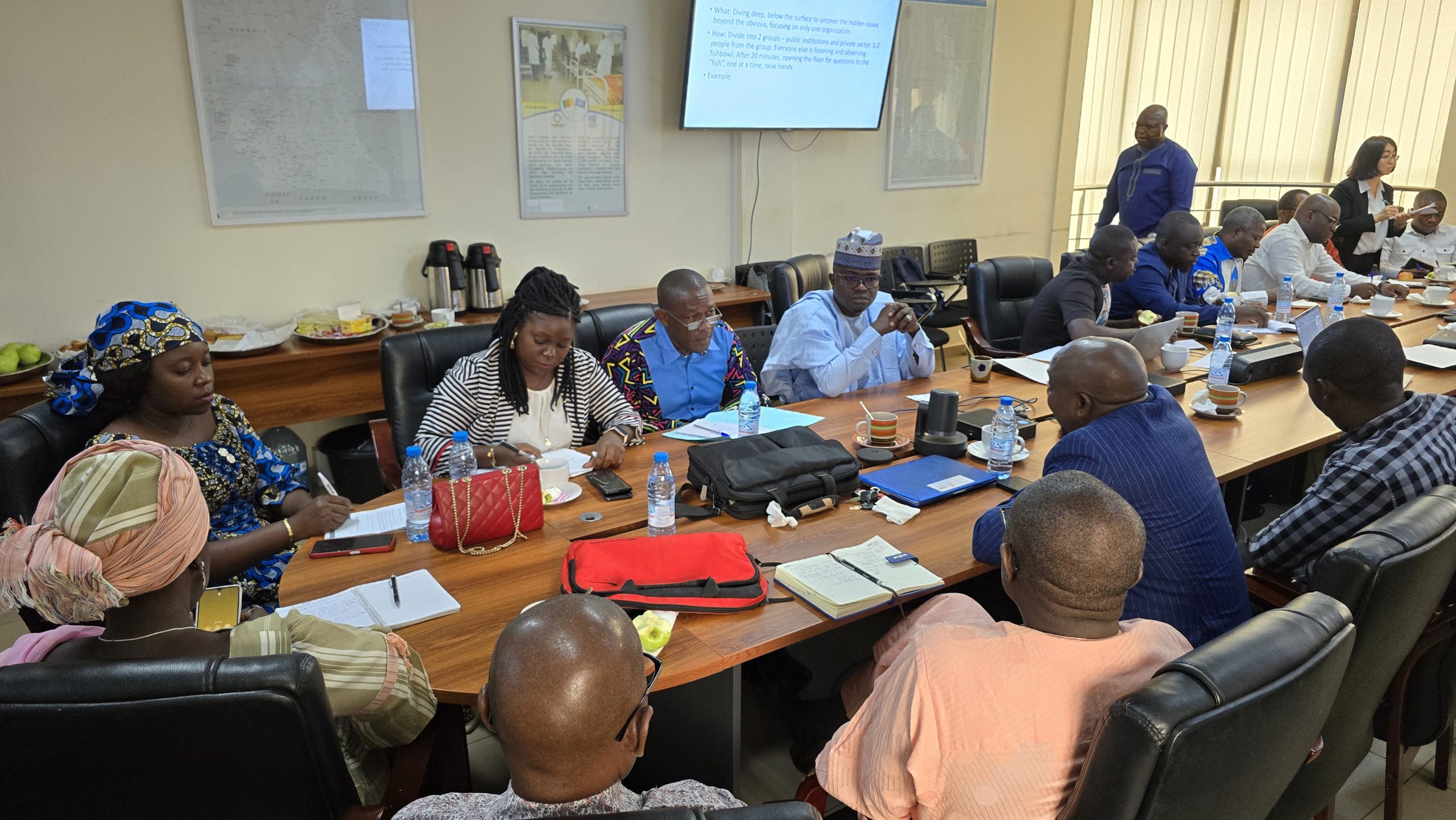
Entrepreneurship and Business Development
Recognizing the critical role women play in artisanal and small-scale mining, the Supporting artisanal and small-scale mining and processing enterprises is crucial for local economic development. The Programme conducted trainings in financial management and business planning for artisanal and small-scale mining enterprises, complementing with small grants, empowerment of women-led associations, and improving the visibility of their work to improve their access to markets.
120 artisanal miners trained:
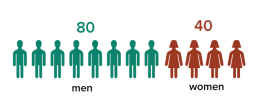
80 participants from artisanal and small-scale mining enterprises
40 participants from vocational training schools
The Programme supported SMEs making products out of Development Minerals. Highlights of enterprises supported by the Programme:
-
-
- BEK group, a small enterprise in Sa’a municipality in Central region of Cameroon, produces tiles, and ornamental and paving stones from dimension stones and supplies to homeowners and companies in the Central region and Yaunde, while creating jobs in the community.
- YMCA-OR SARL (Establishment of Young Minds for Community Advancement Organization) in Foumban, North region, produces natural clay soap using kaolin, using the traditional knowledge of clay’s cleansing and healing properties. Its products are now sold in several cities across the country.
- Keramos Cameroon based in Yaoundé greatly expanded its eco-friendly construction materials product range and went on to become a significant player on the market, winning contracts from government and private sector entities.
- GIC CAMON, an association of cut stone producers in Adamawa, North region, supplies cut stones to meet local demand for construction materials.
- AJDEC (The Youth Movement for Real Actions for Lasting Peace and Development), implemented “Bricks of Hope” project, training and empowering communities affected by climate change and conflict in the Far North region of Cameroon, with over 5 000 young people trained and more than 80 buildings built with stabilized earth bricks.
-
Improving Access to Finance and Markets
The Programme works to enhance access to finance and markets for SMEs in Development Minerals value chains in Cameroon.
-
-
- Provided small grants and supported artisanal and small-scale mining enterprises to implement projects in sustainable mining practices and value-addition, which boosted their productivity, product diversification and incomes.
- Supported artisanal and small-scale mining enterprises participate in the exhibition “Made in Cameroon” to improve their access to markets.
- Facilitated marketing of over 40 different products made from Development Minerals such as stabilized earth bricks, roof tiles, interior and exterior decorative stones and ceramics.
-
Value Addition and Low-Carbon Materials
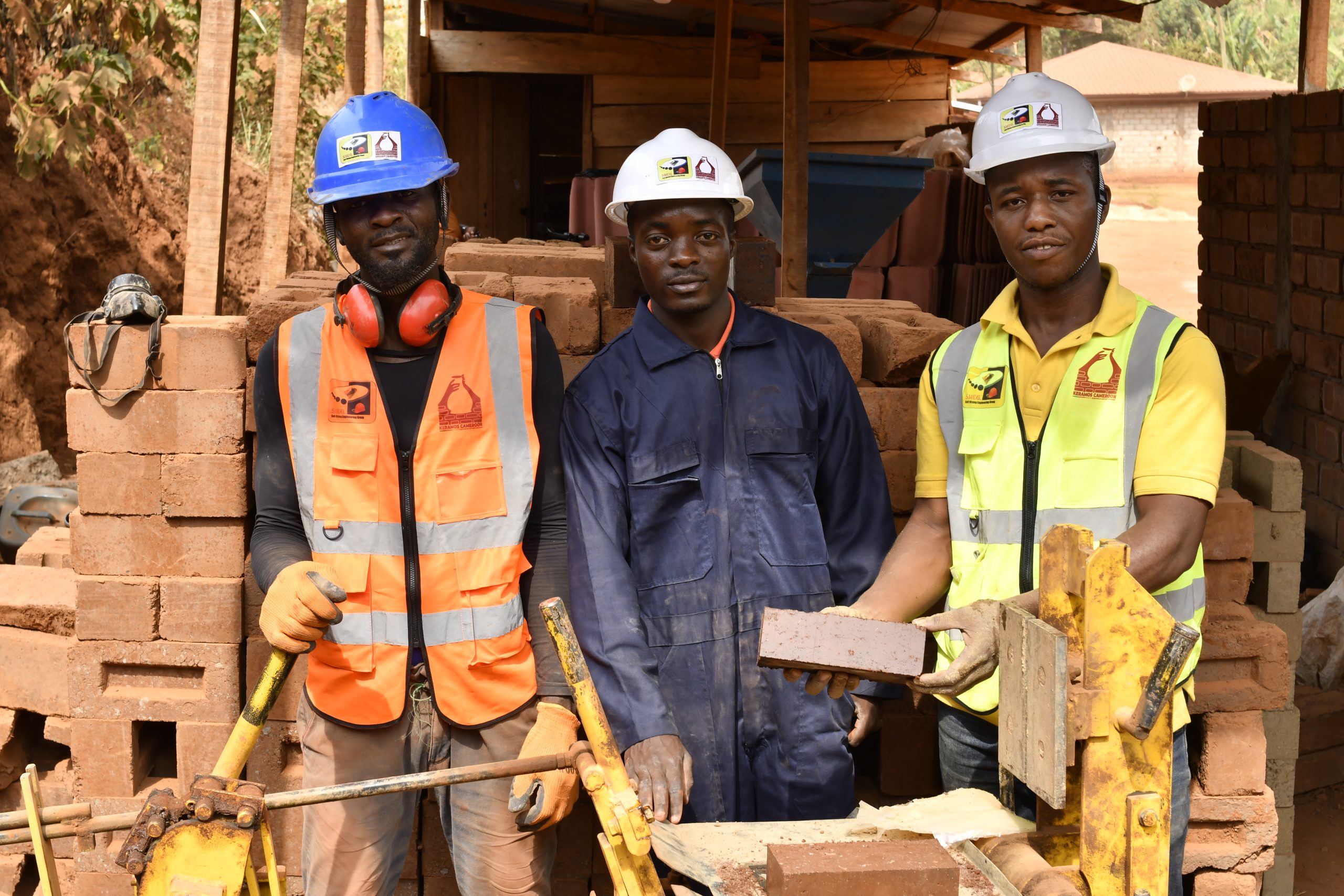
Skills and Value-addition to Development Minerals
The Programme works to strengthen the Development Minerals value chains by promoting value addition and enhancing production processes to boost profitability and marketability of small enterprises.
Incubation of Small and Medium-Sized Enterprises Doing Value Addition
In 2020, the Programme in partnership with the University of Dschang, UNDP Cameroon, and the Ministry of Mines, Industry and Technological Development organized an incubation training of small and medium-sized enterprises (SMEs) working in the Development Minerals value chains. The two week training, followed by a monitoring and evaluation period of six months was comprehensive and covered many subjects necessary for upgrading of SMEs – entrepreneurship, project management, business planning, communication, and gender-sensitive mining practices. It included practical sessions at quarries and workshops across municipalities of Foumban, Baham, Santchou, and Foréké Dschang in in the West region.
37 artisanal and small-scale mining and production enterprises trained in value addition

Ceramics

Dimension stones

Compressed earth bricks

Soap production
21 new artisanal and small-scale mining enterprises were established

15 enterprises received small grants as seed funding
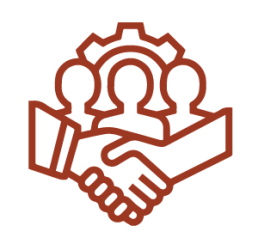
Enhanced artisanal and small-scale mining organization
Improved material processing, and bolstered sustainable practices in the sector
LOW-CARBON MATERIALS
Cameroon is an ideal testing ground for innovations in low-carbon and climate-resilient technologies as all the climatic zones of Africa are represented in Cameroon. Large demand for construction materials and climate change challenges means that Cameroon must both adapt to and mitigate the climate change impacts. The Programme is building capacities to make smart eco-friendly buildings to address housing and energy challenges and create jobs in Cameroon. Moreover, with the Programme support, Cameroonian experts have conducted trainings on these techniques in the Republic of Congo, Burkina Faso and Guinea.
Journey to advance low-carbon materials in Cameroon
- Testing and finalizing the production of lime-calcinated clay cement (LC2) and stabilized earth brick in collaboration with AJDEC and MIPROMALO
- Assessment for sourcing of raw materials for low-carbon materials production in the North region
- Support to creation of incubation centre in Belabo in the East region
- Skills training for youth in production of low-carbon building materials, in sustainable construction and integrating solar power into buildings
MEDIA
Voices from the field
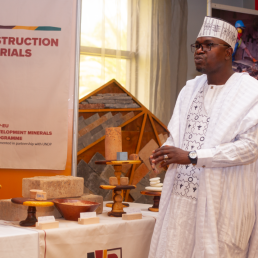
“Through the ACP-EU Development Minerals Programme, we received significant capacity-building support, including access to tools and funding opportunities such as small grants. These grants enabled us to scale up our initiative. Previously, we relied on a manual, hand-pressed brick-making machine to produce bricks. With this support, we were able to upgrade our equipment and strengthen the capacity of our team by accessing improved tools and resources.
”
Through the ACP-EU Development Minerals Programme, we received significant capacity-building support, including access to tools and funding opportunities such as small grants. These grants enabled us to scale up our initiative. Previously, we relied on a manual, hand-pressed brick-making machine to produce bricks. With this support, we were able to upgrade our equipment and strengthen the capacity of our team by accessing improved tools and resources.”
Ibrahim Djagra
Founder AJDEC
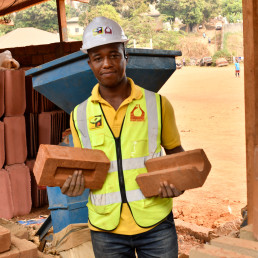
“Being part of ACP-EU Development Minerals Programme and UNDP has boosted our company's activities in a number of ways. We have gained in image, credibility and leadership. We have acquired sophisticated tools for better management and communication within our company and our project. We have integrated networks of professionals in the sector, both nationally and internationally. In one word, we have become credible in the eyes of the general public. This credibility has enabled us to forge new collaborations with private individuals, and to sign major partnerships with private companies and local authorities.
”
Being part of ACP-EU Development Minerals Programme and UNDP has boosted our company's activities in a number of ways. We have gained in image, credibility and leadership. We have acquired sophisticated tools for better management and communication within our company and our project. We have integrated networks of professionals in the sector, both nationally and internationally. In one word, we have become credible in the eyes of the general public. This credibility has enabled us to forge new collaborations with private individuals, and to sign major partnerships with private companies and local authorities.”
Eric Andela
CEO of Keramos
Videos
Training and Experience Sharing to Promote Low-Carbon Construction Materials: Cameroon-Guinea
Clay Based Soap: an Opportunity to Enjoy
Ecofriendly Bricks for Affordable Housing
Kambélé: an Endangered Environment
Value Addition to Development Minerals
Terracotta Bricks: The Paradigm Shift
Sa'a: Coating Based on Natural Stones
Meyonyaka Quarry: Hope in Stone
Photos
IN THE NEWS
- At OACPS meeting in Yaoundé: Mines ministers resolve to boost local transformation of critical mineralsCameroon
28 May 2024
The Guardian Post - Cameroon: The UNDP funds 37 artisanal mining companiesCameroon
11 May 2021
Business in Cameroon
RESOURCES
EVENTS
- There are no upcoming events.
- There are no upcoming events.
Latest Past Events
Training in Production of Stabilized Earth Bricks in Dschang, Cameroon
Dschang, Commune of Menoua, West region, CameroonIn December 2024, the city of Dschang hosted a training workshop for internally displaced persons from the Northwest region, which […]
Training in Eco-Friendly Construction, Belabo, Cameroon
Communes Belabo & Bertoua, East region, CameroonIn November 2024, a week-long training workshop in communes of Belabo and Bertoua, in the East region of Cameroon, equipped […]
Innovation to Produce Low-Carbon Materials in Garoua, Cameroon
Commune Garoua, North region, CameroonFrom January 28 to February 5, 2023, a study mission was conducted in Garoua, Cameroon, as part of the "Green […]


